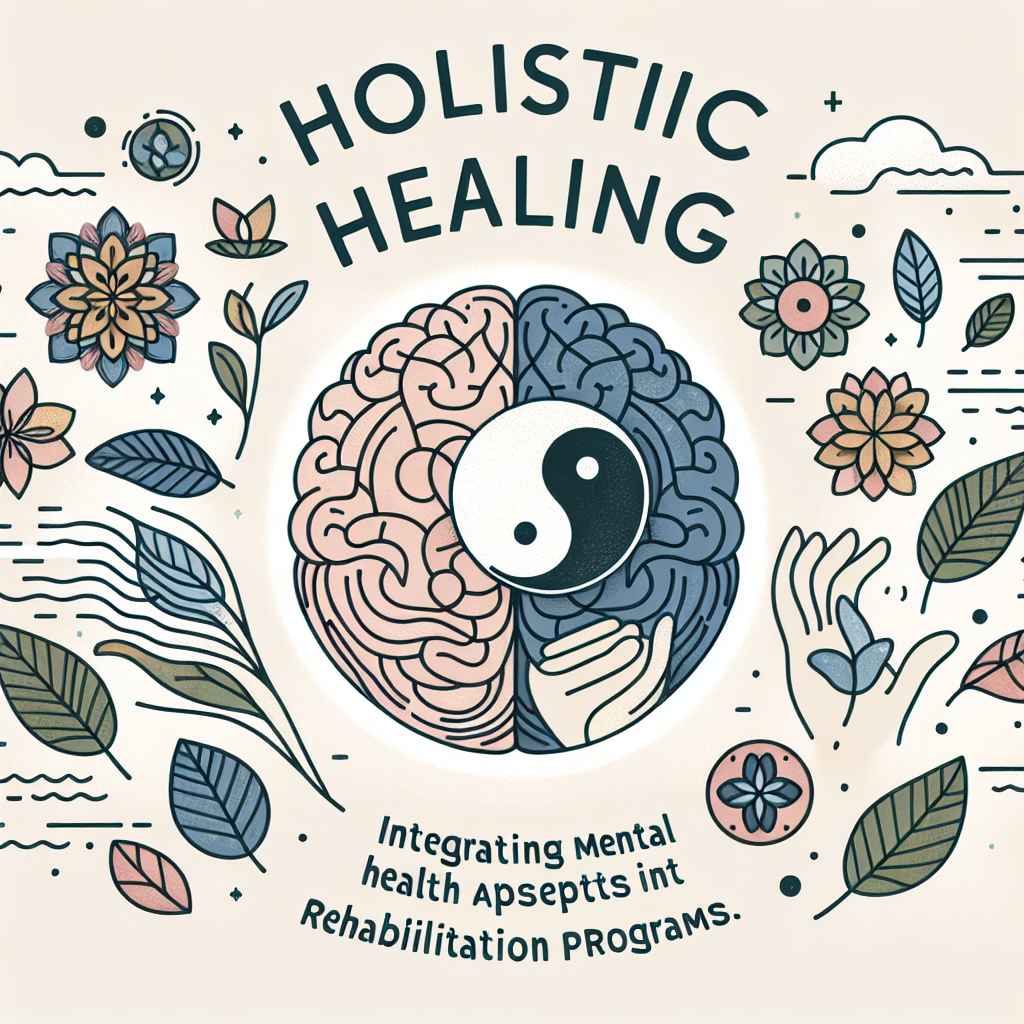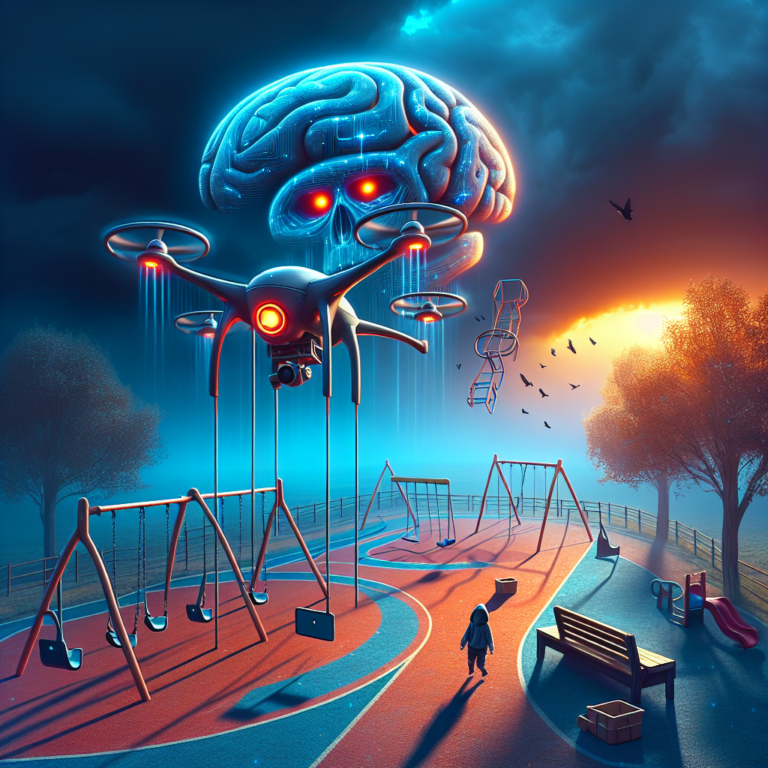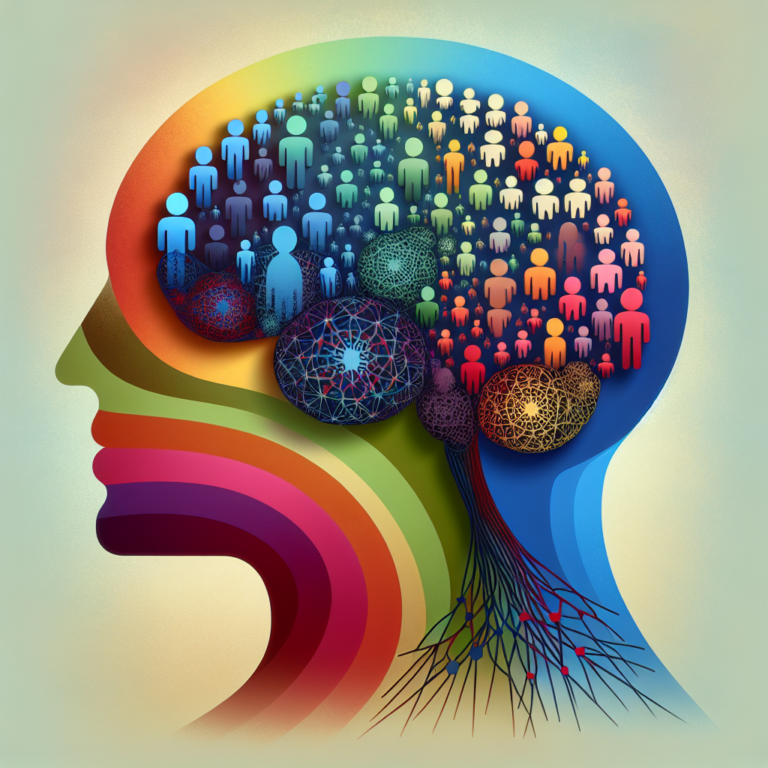
Introduction
In recent years, the concept of holistic healing has gained considerable traction in various disciplines, especially in rehabilitation programs. The understanding that mental health is just as crucial as physical recovery has led to a paradigm shift in how we approach rehabilitation. Holistic healing is no longer just a buzzword; it’s an essential framework for comprehensive recovery.
In this article, we will dive deep into Holistic Healing: Integrating Mental Health in Rehabilitation Programs. We will explore its significance, examine successful case studies, and provide practical insights that can be applied across various rehabilitation settings.
Understanding Holistic Healing
What is Holistic Healing?
Holistic healing is an approach that considers the entire individual—mind, body, and spirit—rather than focusing solely on physical ailments. This philosophy emphasizes that emotional and mental well-being significantly impacts our overall health. By treating the whole person, rather than just symptoms, holistic healing promotes a more profound and lasting recovery experience.
The Importance of Integrating Mental Health
In traditional rehabilitation programs, the focus often lies on physical recovery, relegating mental health to the background. This oversight can lead to incomplete healing and recurrent issues. Holistic healing acknowledges that mental health is intertwined with physical health, making it essential to incorporate mental health strategies into rehabilitation programs.
Current Trends in Rehabilitation
Traditional vs. Holistic Approaches
| Aspect | Traditional Rehabilitation | Holistic Rehabilitation |
|---|---|---|
| Focus | Physical recovery | Whole-person approach |
| Techniques | Medication, surgery | Mindfulness, nutrition, therapy |
| Treatment Duration | Short-term | Long-term integrated support |
| Outcome Measurement | Physical milestones | Overall well-being |
Traditional rehabilitation tends to measure success through physical milestones, such as mobility recovery post-surgery. In contrast, holistic rehabilitation evaluates outcomes through broader well-being indicators, recognizing that mental and emotional state plays a vital role in physical healing.
Case Studies Illustrating Holistic Healing
Case Study 1: The Mindful Rehab Center
The Mindful Rehab Center in California incorporates mindfulness training into its rehabilitation programs. Patients are encouraged to engage in meditation and reflection alongside their physical therapies.
Relevance: Patients reported higher satisfaction and lower anxiety levels, illustrating how integrating mental health practices can significantly enhance recovery efforts.
Case Study 2: Children’s Hospital of Philadelphia
At the Children’s Hospital of Philadelphia, therapists work not only on physical injuries but also on emotional resilience. They use play therapy and cognitive-behavioral strategies, educating both parents and children on emotional intelligence.
Relevance: This approach has drastically reduced post-traumatic stress symptoms in young patients, demonstrating the effectiveness of integrating mental health into rehabilitation.
Case Study 3: The Phoenix Program
The Phoenix Program focuses on substance use rehabilitation, where clients participate in yoga and art therapy alongside traditional counseling. This initiative has helped many clients cultivate a strong sense of community and self-acceptance.
Relevance: Reduced relapse rates have been noted, emphasizing the need for community and mental health support in recovery.
Key Components of Holistic Healing in Rehabilitation
Mindfulness and Meditation
Incorporating mindfulness practices like meditation can drastically reduce stress and anxiety levels. These techniques promote mental clarity, helping patients focus on their recovery goals.
Nutrition and Physical Health
Nutrition plays a fundamental role in rehabilitation. A balanced diet can enhance physical recovery and has direct implications for mental health. Nutritional counseling is, therefore, an invaluable component of holistic healing.
Therapy and Counseling
Psychotherapy and counseling provide emotional tools that are essential for recovering individuals. It helps in addressing underlying issues such as trauma, anxiety, or depression, which can hinder the rehabilitation process.
Physical Activities and Body Awareness
Integrating physical activities, including yoga and tai chi, fosters better body awareness. These activities not only strengthen physical health but also improve mental focus and stress relief.
Integrating Holistic Healing into Existing Programs
Steps for Implementation
- Assessment of Current Practices: Evaluate existing rehabilitation programs to identify gaps in mental health integration.
- Training and Development: Provide training for staff to understand the importance of mental health in rehabilitation and equip them with the necessary skills.
- Collaboration with Mental Health Professionals: Partner with psychologists and counselors to design a comprehensive program.
- Patient Involvement: Involve patients in their care plans. Patient-centered approaches enhance compliance and promote a sense of ownership in their recovery process.
Example of an Integrated Program
A successful implementation would see a rehabilitation center offering weekly mindfulness sessions, nutritional workshops, and regular check-ins with mental health professionals alongside traditional physical therapy sessions.
Conclusion
Holistic healing is revolutionizing how we approach rehabilitation. By integrating mental health into rehabilitation programs, we not only address the surface-level symptoms but also foster lasting change that can positively affect individuals’ overall quality of life.
As we continue to evolve our understanding of health, embracing holistic healing will lead to more effective, comprehensive, and sustainable recovery experiences. Consider this your call to action: whether you are a healthcare provider or a patient, advocate for the inclusion of mental health in rehabilitation practices and be the change you wish to see.
FAQ Section
1. What is holistic healing?
Holistic healing considers the whole person—mind, body, and spirit—in the healing process, promoting comprehensive health and recovery.
2. Why is mental health integral to rehabilitation?
Mental health directly affects physical recovery. Neglecting it can lead to incomplete healing, increased stress, and high chances of relapse.
3. Can holistic rehabilitation methods be integrated into traditional programs?
Yes, combining holistic practices like mindfulness and nutrition with traditional rehabilitation techniques can enhance overall effectiveness.
4. What role does nutrition play in rehabilitation?
Nutrition supports physical recovery levels and has a profound impact on mental well-being. A balanced diet can enhance mood, energy levels, and resilience.
5. How can I advocate for holistic practices in rehabilitation settings?
Start conversations with healthcare providers about the importance of mental health and inquire about integrating such practices into existing frameworks.
By embracing the principles of Holistic Healing: Integrating Mental Health in Rehabilitation Programs, we stand to transform the recovery landscape, paving the way for healthier, more resilient lives. Let’s take this journey together towards a more integrated and supportive healing experience.

















